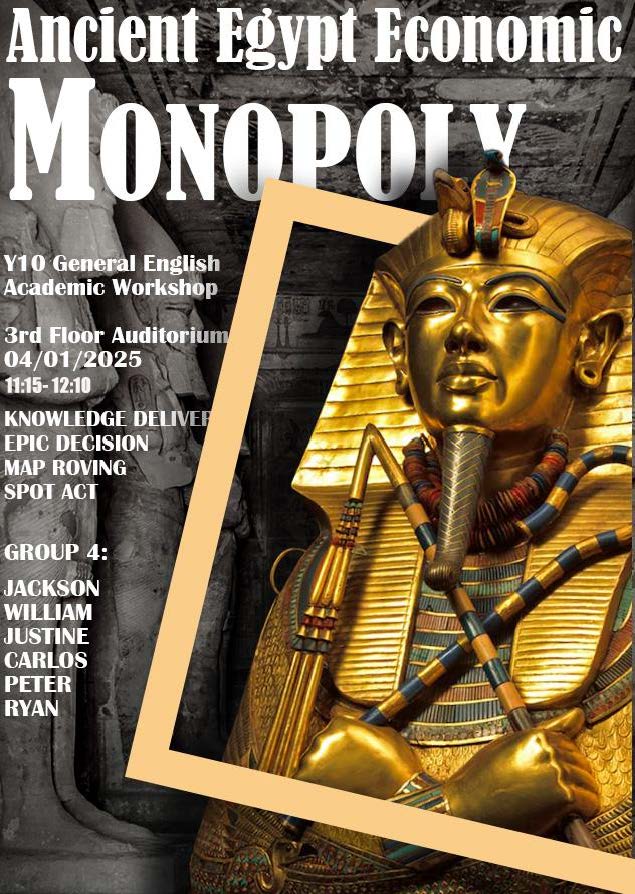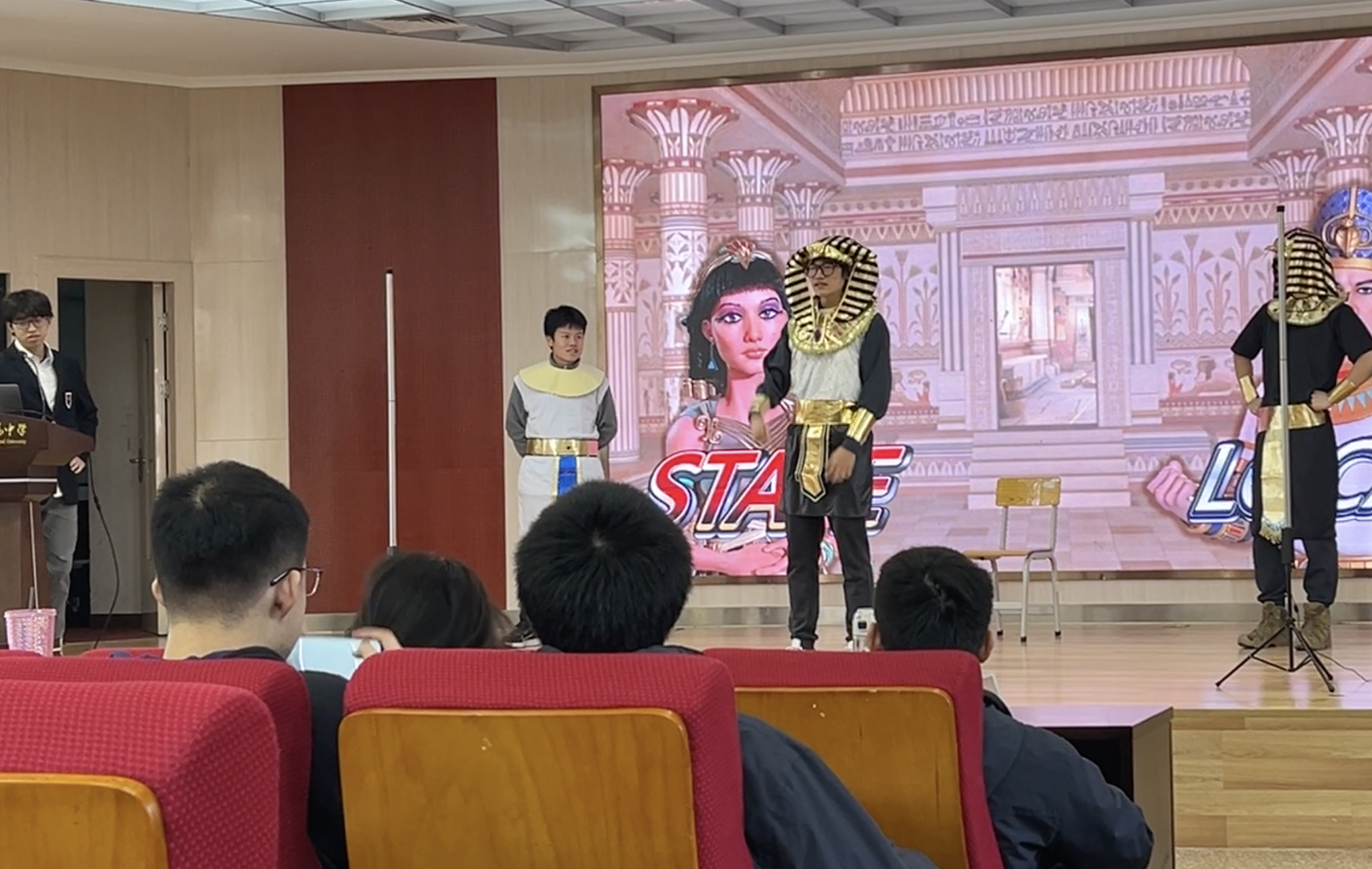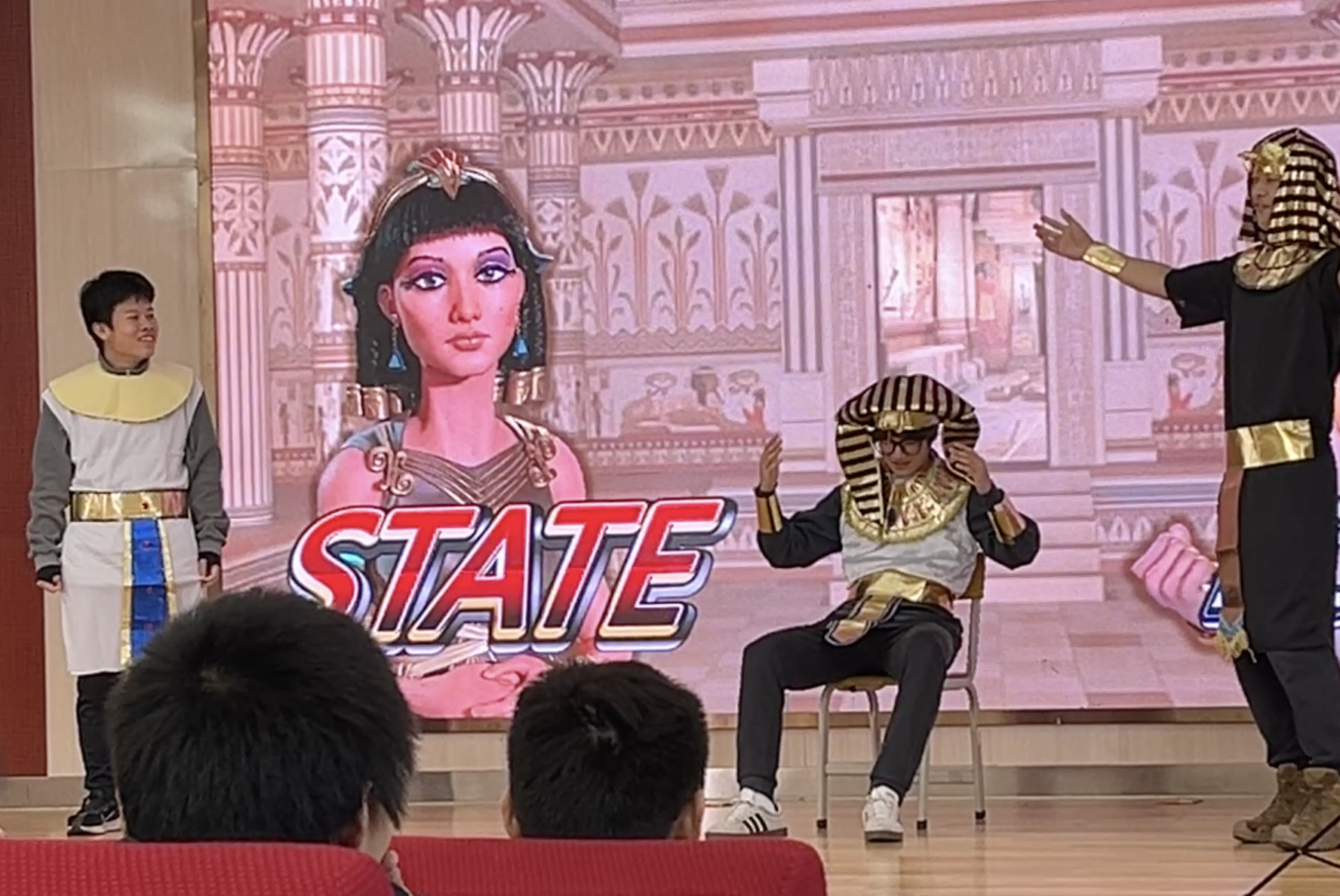Class: Demis Name: Xihang (Justin) Liang
Participating in the workshop project for our General English course was both challenging and rewarding. I worked with a team of five classmates to explore the pros and cons of centralized power in ancient Egypt. We presented our findings through a role-play-based presentation, accompanied by an in-depth analysis of related TOEFL reading questions. This process not only deepened my understanding of the topic but also helped me strengthen my academic skills in a well-rounded way.

During the preparation stage, we quickly divided the work. Some teammates focused on gathering historical sources about ancient Egypt and analyzing how centralization shaped politics, the economy, and culture. Others studied TOEFL reading texts to extract key concepts and test-taking strategies. After several rounds of peer-learning and group discussion, we decided to bring the topic to life by recreating scenes from ancient Egyptian society through role-playing. To ensure accuracy and depth, we read extensively about the daily lives and beliefs of people from different social classes in ancient Egypt.
In the performance, Jackson and Carlos portrayed commoners, revealing the hardships faced by ordinary people under centralized rule, such as heavy taxes and forced labor. I played a pharaoh and highlighted the benefits of centralization, such as the unified planning and construction of pyramids and the efficient management of national resources. This contrast gave our audience a more balanced and three-dimensional understanding of centralized power in ancient Egypt.

For the TOEFL reading component, we broke down complex sentence structures, highlighted high-frequency vocabulary, and explained question-solving strategies. For example, we demonstrated how to locate answers quickly for detail questions using keywords in the question stem. For main idea questions, we taught students to follow the flow of the text and extract central points. However, some students still struggled with inference questions, which suggests we need to include more targeted practice in the future.
From the feedback we received, we identified several areas for improvement. While the role-play brought energy to the presentation, the scene transitions were sometimes choppy, and the delivery of lines lacked fluency, which affected time management and left the TOEFL reading analysis rushed. In addition, the interactive segment lacked strong engagement, and not all audience members were fully involved.

Despite these challenges, I learned a great deal from the workshop. I experienced the power of teamwork—the exchange of ideas and knowledge led to real creativity. I also improved my English expression and adaptability on stage. In the future, I hope to design more cohesive activities, ensure smoother scene transitions, layer our explanations based on difficulty, and build more interactive moments so that we can create an even more effective and enjoyable learning experience.